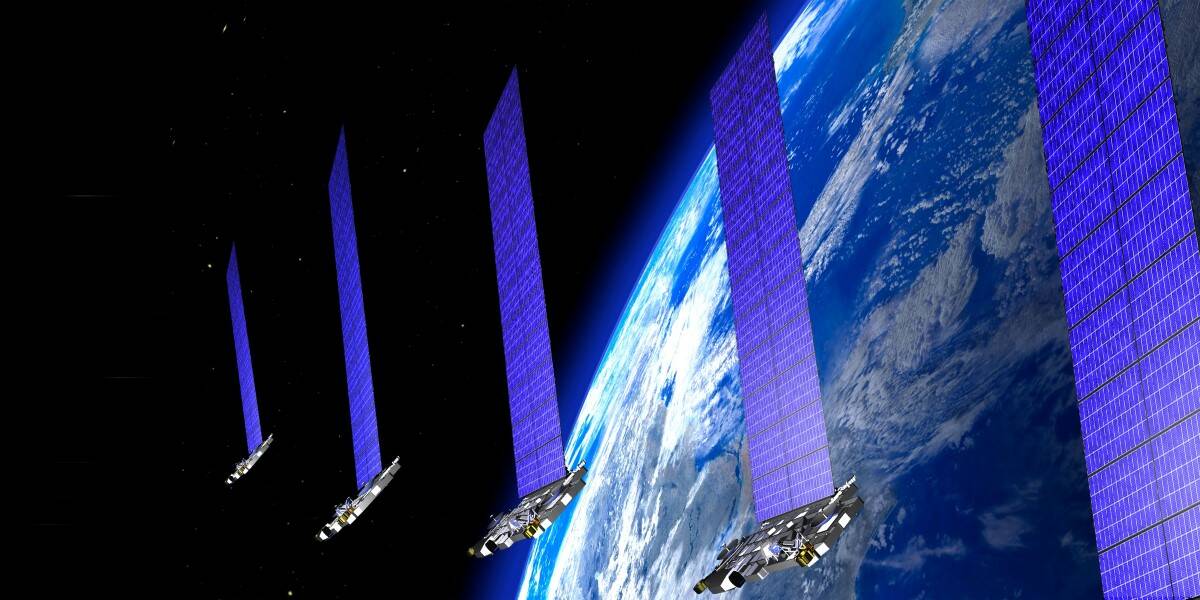FCC Boss Starts Bringing Up Musk's Starlink Dominance, Antitrust Concerns

When Elon Musk's Starlink hit its 7,000th broadband satellite milestone, it's unlikely he expected the FCC chair to suggest his space dominance might be stifling competition—but here we are.
Speaking at the US Chamber of Commerce's annual Global Aerospace Summit, FCC chair Jessica Rosenworcel expressed a desire to encourage competition in the burgeoning commercial space industry. She didn't name any names, but her message was clear.
"Every communications market that has competition is stronger - we see lower prices and more innovation, and honestly space should be no exception," Rosenworcel told FedScoop's Rebecca Heilweil in a one-on-one conversation at the summit.
"We do have one player that's got almost two-thirds of the satellites that are in space right now and has a very high portion of internet traffic," she added.
As of last week, "Starlink now constitutes roughly 2/3 of all active Earth satellites," Musk said the day after that 7,000th Starlink unit hit orbit - so it's not exactly difficult to connect the dots.
"The way I see it is our economy doesn't benefit from monopolies so we've got to invite many more space actors in many more companies that can develop constellations and innovations in space," Rosenworcel continued in reference to whatever "one player" she was referring to.
To encourage that competition, she noted the FCC has kicked off a transparency initiative that involves reaching out to companies interested in building their own satellite constellations, helping them understand the FCC's purview and what it takes to get approval.
Asked about the potential for more satellite constellations creating more space garbage, Rosenworcel said one of the things the FCC has been telling new satellite operators is that they have to have a five-year deorbit plan.
"If you bring it up, you have to have a plan to bring it down," she said. "To get involved in the new space economy, you have to commit to that."
- Shots fired as AT&T and Verizon ask FCC to block Starlink's direct-to-cell plans
- Would you rather buy space broadband from a billionaire, or Communist China?
- Astronomers back call for review of bonkers rule that means satellite swarms fly without environment checks
- Trump taps Musk to lead 'government efficiency' task force
That all said, while Starlink is dominating the broadband satellite internet industry, at least in terms of sat numbers, in terms of anti-competitive behavior we're not really aware of SpaceX deliberately and maliciously keeping other launchers out of the game. They just can't seemingly keep up at the moment.
This orbit ain't big enough for the two of us
This isn't the first time Musk and the FCC have aired public grievances with each other. The billionaire has also been railing against US government bureaucracy lately in general.
After getting preliminary approval from the FCC under the Trump administration for an $885 million investment in Starlink through the Rural Digital Opportunity Fund (RDOF), Rosenworcel's FCC decided late last year to reject Starlink's award.
Rosenworcel argued that Starlink failed to meet minimum speed requirements specified under the RDOF, while SpaceX argued the FCC tested Starlink's connectivity in improper areas. Musk derided the FCC decision, too.
"This was an extremely unethical and politically partisan decision by the FCC that is contrary to the interests of the American people," Musk said late last year.
A further appeal on Starlink's behalf from a member of the public was also rejected [PDF] by the FCC in late August.
We've asked the FCC if it's considered recommending an investigation into Starlink's control of about 60 percent of Earth's active satellites to the FTC or DoJ, but haven't heard back. SpaceX hasn't replied to a request for comment, either. ®
From Chip War To Cloud War: The Next Frontier In Global Tech Competition
The global chip war, characterized by intense competition among nations and corporations for supremacy in semiconductor ... Read more
The High Stakes Of Tech Regulation: Security Risks And Market Dynamics
The influence of tech giants in the global economy continues to grow, raising crucial questions about how to balance sec... Read more
The Tyranny Of Instagram Interiors: Why It's Time To Break Free From Algorithm-Driven Aesthetics
Instagram has become a dominant force in shaping interior design trends, offering a seemingly endless stream of inspirat... Read more
The Data Crunch In AI: Strategies For Sustainability
Exploring solutions to the imminent exhaustion of internet data for AI training.As the artificial intelligence (AI) indu... Read more
Google Abandons Four-Year Effort To Remove Cookies From Chrome Browser
After four years of dedicated effort, Google has decided to abandon its plan to remove third-party cookies from its Chro... Read more
LinkedIn Embraces AI And Gamification To Drive User Engagement And Revenue
In an effort to tackle slowing revenue growth and enhance user engagement, LinkedIn is turning to artificial intelligenc... Read more

